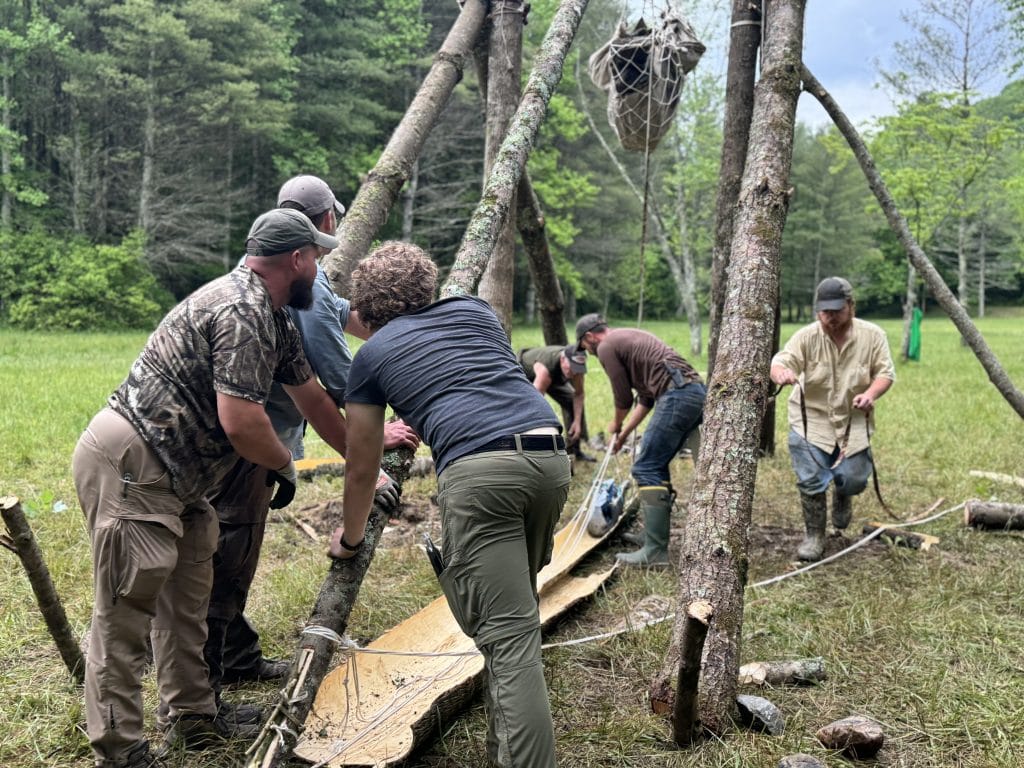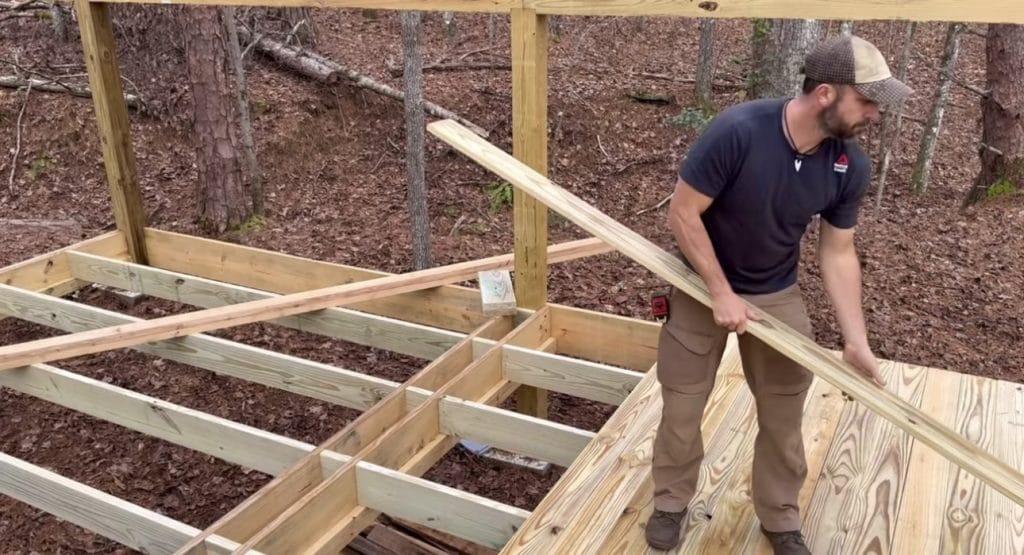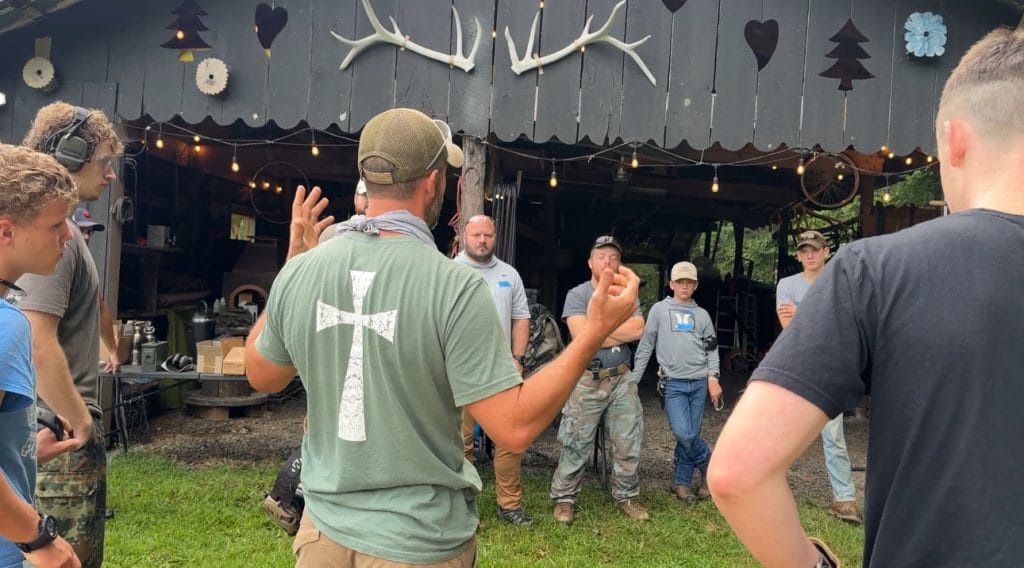
When most people think about survival scenarios, their minds jump straight to apocalyptic collapse. Here's the reality check: you're far more likely to need barter economy survival skills when your car breaks down, the power goes out for a week, or supply chains get disrupted from natural disasters than during some Hollywood-style doomsday event. And the communities that thrive during these real-world challenges? They're the ones that have already built networks of mutual support through practical skill sharing and resource trading.
The survival community has gotten caught up in the gear game. Don't get me wrong having quality equipment matters. I've learned something important through years of training folks in my community: your network is your net worth when things get tough.
Think about it this way. You can have a bunker full of MREs, but if you don't know how to repair your neighbor's generator in exchange for fresh eggs, you're missing the bigger picture. According to recent studies on community resilience, neighborhoods with established mutual aid networks recover 40% faster from disasters than those without. I saw this firsthand while volunteering in North Carolina post Hurricane Helene.
During the Texas freeze of 2021, the families who fared best weren't necessarily the ones with the most gear, they were the ones who had already established trading relationships with their neighbors. One family shared their generator fuel, another provided hot meals, and a third contributed mechanical expertise. I've also spoken about families during the Dust Bowl that had canning parties, church and journaling time to get through tough times with a little more ease. That's community-based preparedness in action.
The beauty of developing barter economy survival skills is that they serve you every single day, not just during emergencies. When I teach primitive survival skills to my friends in exchange for fresh eggs from their chickens, we're both getting value immediately. I'm sharing knowledge that could save their lives, and they're providing protein that keeps my family healthy. It's a win-win that builds relationships and practical capabilities simultaneously.
Watch here if you want to listen to more tips on being prepared: Become Who You Want To Be!
When it comes to bartering, it is not just about what you trade, it is about who you are trading with. In survival situations, the wrong people can drain resources and create more problems than they solve. The same goes for building a community you can count on. That is why I use my T.R.U.S.T. framework that my wife and I created as the filter for every relationship I allow into my circle.
T.R.U.S.T. stands for
Trustworthy,
Reliable,
Useful,
Suitable,
and Teachable.
If someone does not check those boxes, they will struggle to be an asset in bartering or in a long term survival group. Trustworthy people tell the truth. Reliable people show up when it matters most. Useful people bring real skills or resources to the table. Suitable people are a good fit for the values and culture of the group. Teachable people learn new skills that help the community adapt.
Bartering goods is temporary, but bartering trust, skills, and commitment is what builds a community that can survive anything!
The most valuable currency in any barter economy isn't gold or silver. It's practical knowledge. Here are the skills that consistently hold high trade value in my community:
High-Value Knowledge Skills:
I've found that primitive survival skills training is particularly valuable because it addresses everyone's deep-seated fear of being helpless. When I teach someone how to start a fire without matches or purify water using basic materials, I'm not just sharing techniques, I'm giving them confidence.
Last month, I spent a day helping a buddy repair his rotten old deck. His body has been used and abused over the years and doesn't always cooperate when he needs it. This same friend has been invaluable when it has come to vehicle mechanics. I would not have been able to build the veggie oil burning On Three Adventure Truck without his expert guidance.

Not everything in a barter economy is about services. Physical goods play a crucial role, especially items that address immediate needs or enhance long-term capabilities. In my community, we all bring different skills and each one is valuable. There are different roles that are needed for our community to flourish. Especially, during tough times.
High-Trade-Value Items:
The key is focusing on items that either can't be easily purchased or are significantly better than everything else that can be locally sourced. Those eggs I get from my friend? They're not just protein they're proof of a productive relationship and a connection to local food security.
Recently, for my birthday, my buddy and I exchanged survival knives. I gave him my favorite EDC knife that had served me well for years, and he gave me one he'd crafted himself. A beautiful piece with a walnut handle and a modified Green River blade. This wasn't just a gift exchange; it was a demonstration of trust, skill, and the kind of relationship that makes communities resilient.

Sometimes the most valuable thing you can offer is your time and effort. Service-based trades often create the strongest community bonds because they require personal interaction and demonstrate reliability.
Valuable Services for Barter:
The beauty of service trades is that they often reveal other opportunities for collaboration. When I help someone winterize their home, I learn about their other preparedness needs, and they see firsthand the value of the knowledge I can share.
Building Your Local Barter Network: A Practical Approach
The strongest preparation networks aren't built around fear but around genuine community relationships. After years of developing these connections, I've learned that the most resilient communities start with simple neighbor interactions and grow into trusted networks that can weather any crisis.
Start Small and Build Trust
Don't try to create a bartering system overnight. The strongest networks grow organically from genuine relationships. Begin by taking inventory of what you bring to the table: skills you can teach, goods you can produce or share, services you can provide, and equipment you can lend or maintain.
Next, identify what your community actually needs. Talk to neighbors about their challenges, observe what people are buying or struggling with, and notice gaps in local services or expertise. Pay attention to seasonal needs and patterns throughout the year.
Finding Your Core Group
Church communities often provide a strong foundation for these relationships because they already share common values and meet regularly. If you don’t have a church or don’t find like-minded people there, you’ll need to get a little creative with your networking.
I’ve stumbled across some of my most reliable connections in the least “prepper-looking” places. Meeting parents at my kids’ sports events turned into invaluable friendships. It turns out sideline small talk can lead to survival allies. Coffee shops became my unofficial recruiting grounds; one minute you’re debating cold brew vs. hot drip, the next you’re comparing gardening tips and realizing you’ve found someone who can actually weld.
The biggest breakthrough came when I started meeting friends of friends. Expanding the circle naturally through trusted introductions made everything less awkward. It’s way easier than cold-calling your neighbor to ask if they own a chainsaw. I’ve even met a close friend through my YouTube channel. My wife was cautious at first (and rightfully so, meeting strangers from the internet sounds like the opening scene of a Dateline episode). After a few events she realized he wasn’t a freak, just another guy who owns way too many knives.
Testing and Vetting Your Network

Not everyone who seems interested will prove reliable when it matters. We learned to test each other through small commitments first. Host work parties for simple projects and see who actually shows up. Notice who follows through on promises and who tends to gossip about others' business or situations.
Look for people who take care of their property and equipment, show up when they say they will, demonstrate willingness to learn and teach, understand the value of mutual aid, and share similar values about family and community. These are the people who will have your back when things get tough.
Making Your First Trades
Start with low risk, high value exchanges. Offer to teach someone a useful skill in exchange for something simple. The goal is establishing trust and demonstrating value. Focus on immediate, practical benefits rather than disaster scenarios when approaching new people.
Creating Groups Where None Exist
If your area lacks existing preparedness minded communities, consider starting small hobby or skill sharing groups. A canning club, gardening group can attract the right kind of people naturally. These activities build the relationships and trust that transform people into genuine mutual aid networks.
The Practical Approach
When someone asks how to approach neighbors or others about bartering without seeming weird or paranoid, the answer is simple: start with normal, helpful interactions. Offer to teach someone a skill you know they're interested in, or ask for help with something they're good at. Most people respond well to genuine offers of mutual assistance when presented as community building rather than crisis preparation.
The strongest barter networks emerge from communities where people already know and trust each other. Focus your energy on building these relationships now, before you need them. The conversations about preparedness and mutual aid become much easier when they're built on a foundation of genuine friendship and proven reliability.
Step 1: Inventory Your Assets
Step 2: Identify Community Needs
Step 3: Make Your First Trades Start with low-risk, high-value exchanges. Offer to teach someone a useful skill in exchange for something simple. The goal is to establish trust and demonstrate value.
This might be the most important advice I can give: be intentional about who you build relationships with. Not everyone in your community will be interested in developing resilience skills, and that's okay. Focus your energy on people who share your values and demonstrate reliability.
Look for neighbors who:

These are the people who will have your back when things get tough, and they're the ones worth investing your time and knowledge in.
Q: How do I approach people about bartering without seeming weird or paranoid?
A: Start with normal, helpful interactions. Offer to teach someone a skill you know they're interested in, or ask for help with something they're good at. Focus on immediate, practical benefits rather than disaster scenarios. Most people respond well to genuine offers of mutual assistance.
Q: What if people try to take advantage of my willingness to trade and share knowledge?
A: Set clear boundaries from the beginning. Offer specific, limited exchanges to test reliability before committing to larger trades. If someone consistently takes without giving back, redirect your energy to more reciprocal relationships. Remember, you're building a network of mutual aid, not a charity operation.
Q: How do I determine fair value when bartering skills for goods?
A: Consider the time investment, expertise level, and practical value of what's being exchanged. A one-hour training session might be worth several dozen eggs or a small batch of preserved food. The key is that both parties should feel they're getting good value. Don't be afraid to negotiate or suggest alternatives.
Q: Is it legal to barter goods and services without paying taxes?
A: In most cases, small-scale bartering between individuals is legal, but technically the IRS considers bartered goods and services as taxable income at fair market value. For casual, small-scale trades between neighbors, this rarely becomes an issue. In my opinion, keep your trading to yourselves and don't involve the government in places they don't belong. But consult a tax professional if you have concerns.
Q: How do I maintain bartering relationships during good times when people don't feel the need for survival skills?
A: Focus on immediate, practical benefits rather than disaster preparedness. Teach skills that improve people's daily lives such as better fitness, money-saving techniques, hobby-related knowledge, or practical repairs. The survival applications are secondary to the immediate value.
Q: How do I handle disagreements or conflicts within my barter network?
A: Address issues directly but respectfully. Focus on the specific problem rather than attacking character. Sometimes relationships don't work out, and it's better to amicably part ways than force incompatible partnerships. Maintain your reputation for fairness and reliability above all else.
As someone who believes in the biblical principle of stewardship, I see barter economy skills as part of our responsibility to care for our families and communities. We're called to use our gifts and resources wisely, and building networks of mutual support is one of the most practical ways to do that.
When I invest time in teaching someone survival skills, I'm not just preparing them for emergencies – I'm contributing to the strength and resilience of my entire community. When my neighbor shares fresh eggs, she's not just providing food – she's maintaining a relationship that could be crucial when times get tough.
The strongest communities throughout history have been those that understood the value of interdependence. Not dependence, where people become helpless without outside support, but interdependence, where everyone contributes their strengths and covers others' weaknesses.
The best time to start developing barter economy survival skills was five years ago. The second-best time is today. Here's your action plan:
Remember, this isn't about preparing for the end of the world. It's about building a stronger, more resilient life right now. Every skill you learn, every relationship you build, and every successful trade you make increases your family's security and your community's strength.
The question isn't whether you'll ever need these skills and relationships. The question is whether you'll have them ready when life inevitably throws you a curveball.
P.S. SHARE THIS WITH SOMEONE WHO NEEDS TO GAIN THE SKILLS! What's the most valuable skill you could teach someone in your community right now? Share this article with someone who needs to sharpen their skills. Add your thoughts in the comments below, and let's start building stronger communities together.
Jason Salyer is the creator and host of the On Three brand, specializing in practical survival, bushcraft, adventure and family preparedness. With years of experience as a Division One strength and conditioning coach and as a human performance specialist for Naval Special Warfare, Jason knows what it takes to build real resilience. His mission is simple. Help families become strong, capable, and prepared to thrive in any situation.
Explore the gear I personally use and trust.
Wazoo Survival Gear → Shop here (Use code GOON32025 for a discount)
Bear Forest Knives → On3 EDC | On3 Ulu | On3 Primitive
Exotac Fire Starters → Shop here (Code: On3)
PNW Bushcraft Gear → Shop here
Preparation is freedom. Do not wait for the grid to fail to figure out what you should have done. Start now. Train your body, build your get home bag, and learn how to move with confidence when everything else stops.
📩 Substack → On3Ready Newsletter
📺 YouTube → ON Three Channel
🔥 Patreon → Join On Three Community
🛠 Amazon → My Storefront
🌲 Website → GoOn3.com
💪 Fitness → Go On Three Fitness
👕 Apparel → Shop Here

